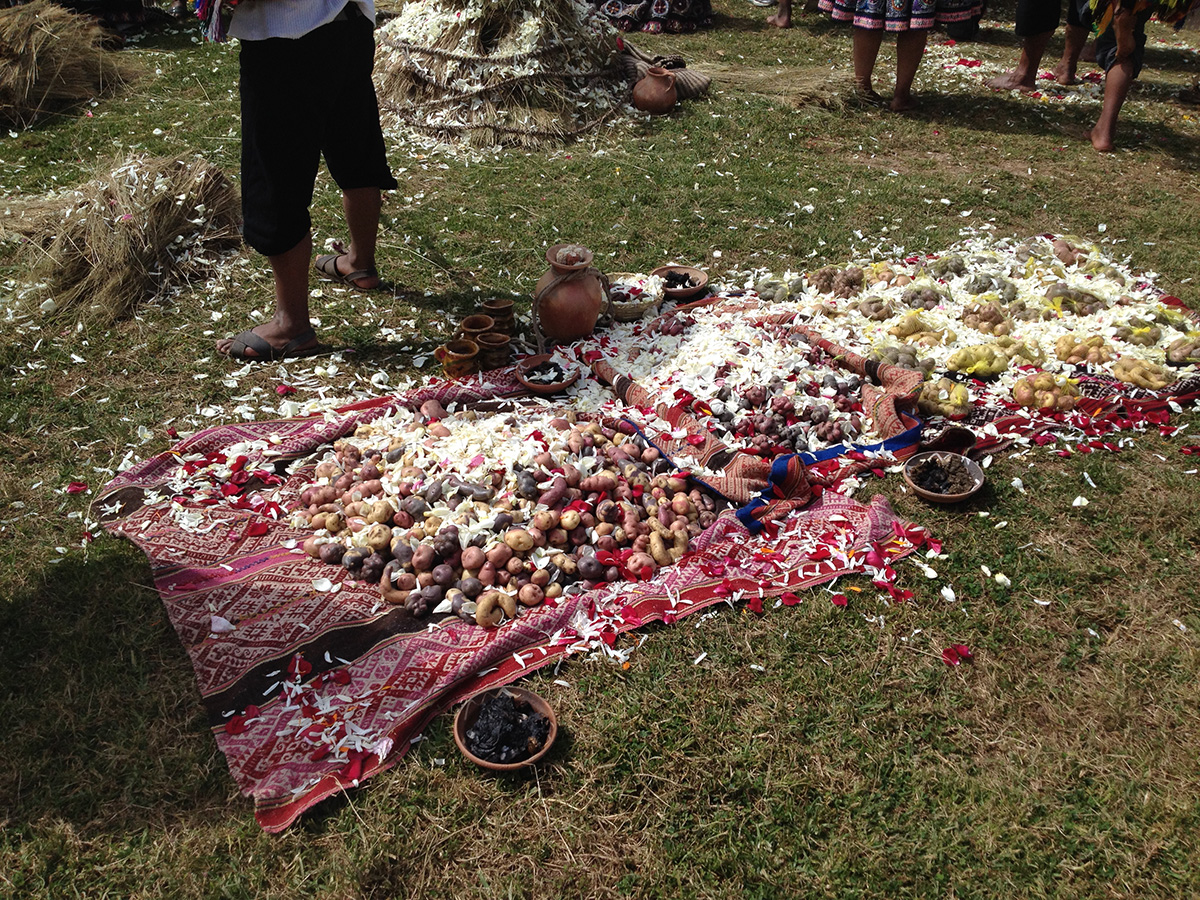Food Abundance and the Storage of Potato Kin. The Houses of the Potato Park in the Peruvian Andes
Author: Olivia Angé
Dates: 0ctobre 2023
Venue: Of Hoarding and Housekeeping. Material Kinship and Domestic Space in Anthropological Perspective, edited by Sasha Newell
Link to the publication: https://www.berghahnbooks.com/title/NewellOf
Abstract
In the vein of Janet Carsten’s study of rice consumption in Malaysia (1995), eating the same food has been widely documented as a core practice of kin making. In the Andes, too, eating together has been reported as a core instance of human relatedness. This chapter explores storage as another modality of food practices convening domestic relationality.
Potato is a vital food to the cultivators in the Peruvian highlands, where no other crop flourishes. While they are not hoarded as objects of display in the fashion of Melanesian slow decay tubers, potato accumulation in Andean houses nonetheless participates in the extension of their growers’ webs of relatedness. This paper describes the spatio-temporalities of potato storage, according to the cycles of gestation, sprouting, rot, freezing, and cooking, through which potatoes are enacted as both mother and child to their cultivators. This focus on the peculiarities of tuber storing highlights the ethical commitments and mutual regards weaving a heterogenous relatedness composing Andean houses.
The chapter compares storage in domestic household with another kind of building where potato is accumulated: the seed bank constructed as part of the Parque de la Papa (Potato Park). An ethnographic description of seed-tuber storage on the bank shelves posits agrobiodiversity conservation in the park not as a way to accumulate genetic resources available for breeders in laboratories across the world, but as an initiative reclaiming human respect for crop kin to the public at large.

